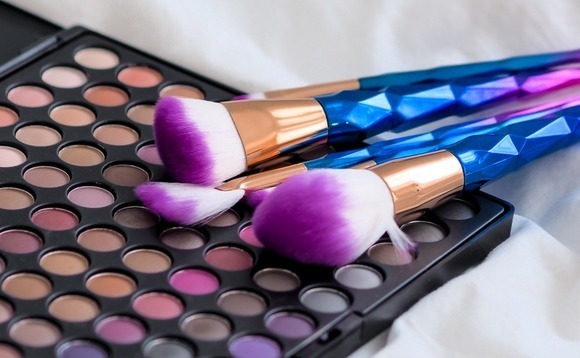
Deal focus: IvyCap's timely 22x windfall

With the launch of its third fund a few weeks away, IvyCap Ventures leveraged strong investor interest in beauty e-commerce player Purplle to secure one of India’s largest rupee VC exits
IvyCap Ventures received commitments from approximately 20 Indian institutional investors for its debut fund, which closed at INR2.4 billion ($38 million) in 2013. A second flagship vehicle of INR5.35 billion followed in 2017. The firm is preparing to launch a third, with a target of up to INR20 billion and a mind to bring foreign LPs into the domestic structure via a Singapore feeder vehicle.
This bullishness has been fed by a recent partial exit from beauty e-commerce platform Purplle. Sequoia Capital India led a $45 million Series D round at a valuation of $300 million – double the Series C valuation – and took out the entire position held by IvyCap's first fund, delivering a 22x return and returning 135% of the corpus. The firm remains an investor in Purplle through Fund II.
"We believe it is the largest exit, in rupee terms, from a venture capital investment, and one of the largest overall," says Vikram Gupta, founder and managing partner at IvyCap. "Domestic investors haven't seen much money coming back from venture capital, so this is a confidence booster. We are already receiving calls asking about investing in our next fund."
LPs in Fund I include the IIT Alumni Trust, an entity established by Gupta that draws on the resources of graduates from Indian Institutes of Technology (IIT) and reinvests a portion of the profit back into academic foundations and endowments. It is not only a source of capital for IvyCap, but also binds alumni to the firm – as founders of or mentors to portfolio companies. Purplle is no exception.
"The team came to us because they have IIT backgrounds," says Gupta. "They didn't know anything about beauty when we first invested [in 2015], but they knew a lot about how technology could be used in beauty. That appealed because there are so many data points you gather around what people decide to buy, and based on that, you can personalize the offering and creates a lot of stickiness on the platform."
Founded in 2012, Purplle gained initial traction as an e-commerce marketplace, brokering transactions between brands and consumers. However, there was always a goal to leverage the data accumulated and build-out direct-to-consumer private-label brands that resonate with locals.
In this respect, Gupta sets the company apart from Nykaa, a beauty e-commerce platform that emerged around the same time and is reportedly preparing for an IPO. While Nykaa has started manufacturing some of its own products, the approach to third-party distribution was inventory-led and included creating an offline store network to complement the company's online presence.
Purplle now claims to offer nearly 50,000 products from 1,000 brands to seven million monthly active users with gross merchandise value (GMV) rising a compound annual rate of more than 90% over the past three years. But the private-label business, which was introduced in 2015, helped make the company capital-efficient and profitable.
When Goldman Sachs led the $30 million Series C in 2019, Purplle was already in the black. That year, private-label sales accounted for 20% of the total. In 2020, it was around 35%. The portfolio includes the likes of StayQuirky, NY Bae, Good Vibes, and the eponymous Purplle. Manish Taneja, the company's co-founder and CEO, claims that Good Vibes is already a INR1.5 billion brand.
"When we invested, they were doing $100,000-150,000 a month in net merchandise revenue. Now, they are doing $100 million in annualized sales. The growth curve has been steep with multiple inflection points – when they started bringing in international brands, when they started launching multiple private-label brands," says Gupta. "With scale, the multiplier effect is higher."
Blume Ventures, Mumbai Angels, and Chennai Angels were Purplle's earliest investors in 2013 and IvyCap contributed INR150 million in Series A funding two years later. A Series B – led by JSW Ventures in 2016, AVCJ Research's records show, and then Goldman and Verlinvest were the new arrivals in the Series C alongside multiple re-upping investors.
Gupta observes Purplle wasn't interested in doing a primary fundraise for the Series D because its cash reserves were sufficient. Therefore, it became a question of which existing shareholder was willing to sell. IvyCap was in two minds, but ultimately Fund I had passed the seven-year mark and a secondary restructuring was already being considered. Distributions to paid-in are now 1.5x.
"We still have the Fund II stake," he says. "Purplle started as a horizontal platform and it has become a good combination of horizontal and vertical. There aren't many horizontal players in the market, so it has a strong foundation to keep expanding, adding more verticals and brands."
Latest News
Asian GPs slow implementation of ESG policies - survey
Asia-based private equity firms are assigning more dedicated resources to environment, social, and governance (ESG) programmes, but policy changes have slowed in the past 12 months, in part due to concerns raised internally and by LPs, according to a...
Singapore fintech start-up LXA gets $10m seed round
New Enterprise Associates (NEA) has led a USD 10m seed round for Singapore’s LXA, a financial technology start-up launched by a former Asia senior executive at The Blackstone Group.
India's InCred announces $60m round, claims unicorn status
Indian non-bank lender InCred Financial Services said it has received INR 5bn (USD 60m) at a valuation of at least USD 1bn from unnamed investors including “a global private equity fund.”
Insight leads $50m round for Australia's Roller
Insight Partners has led a USD 50m round for Australia’s Roller, a venue management software provider specializing in family fun parks.







